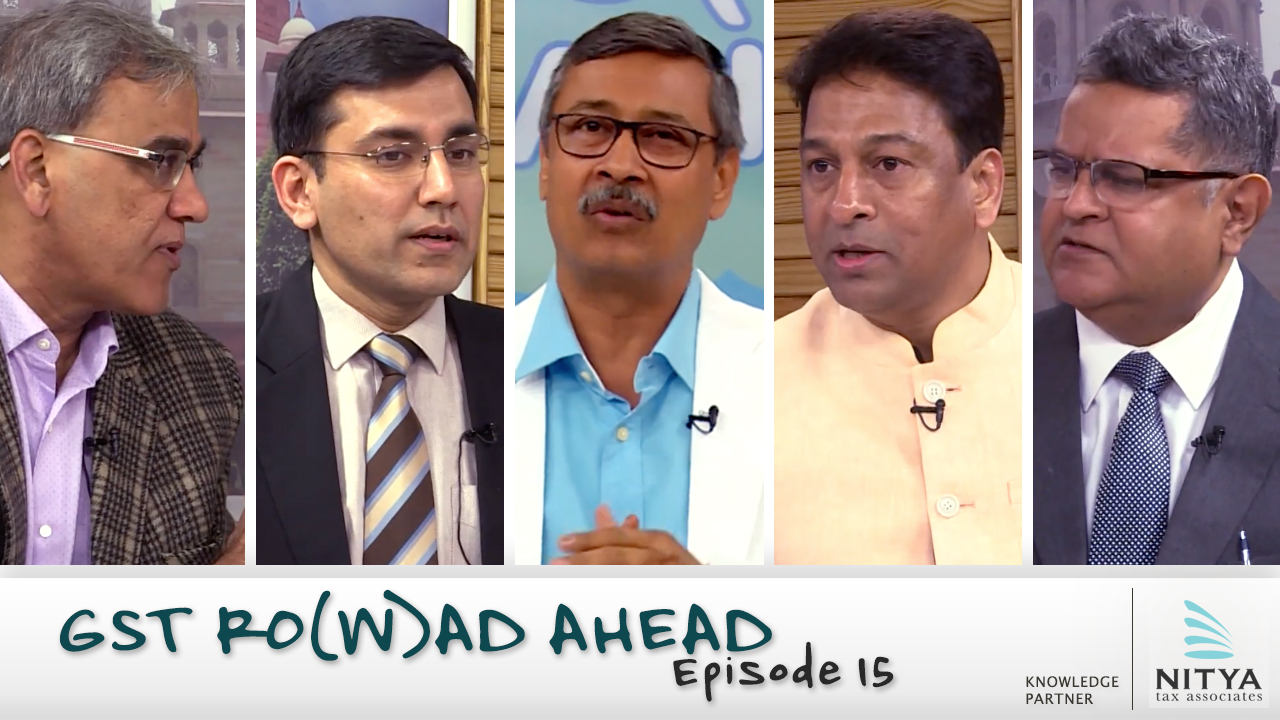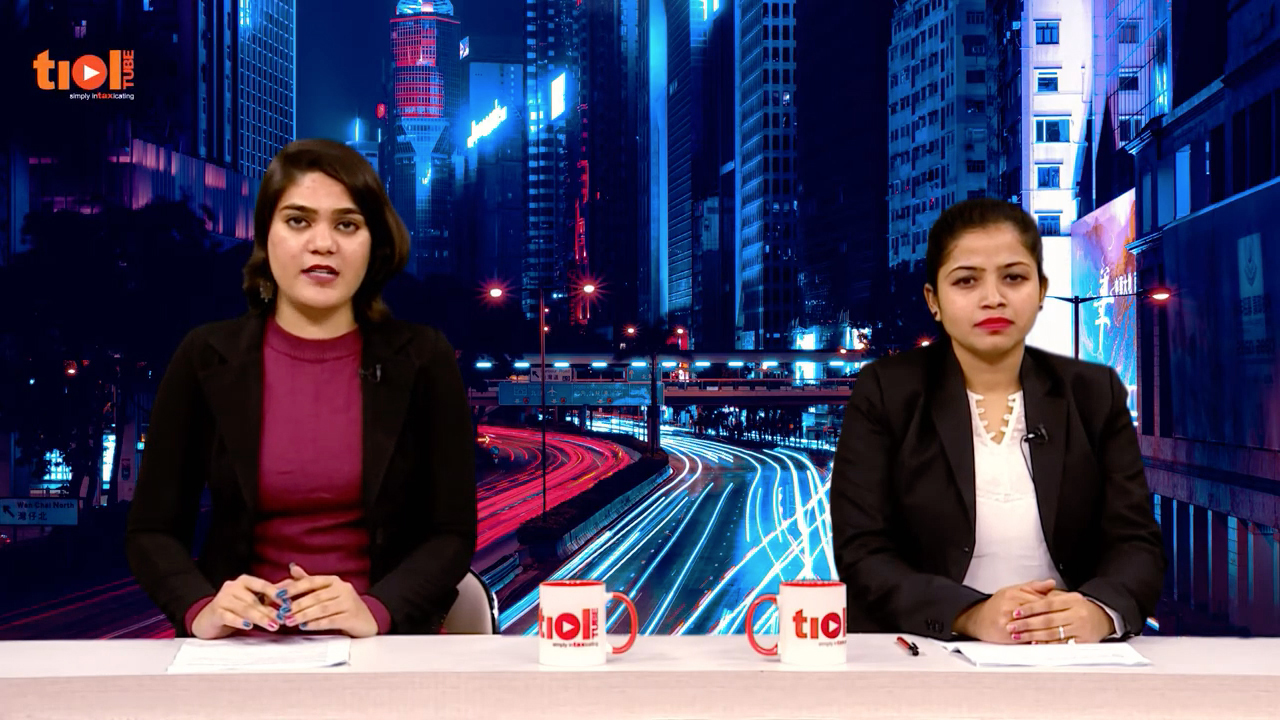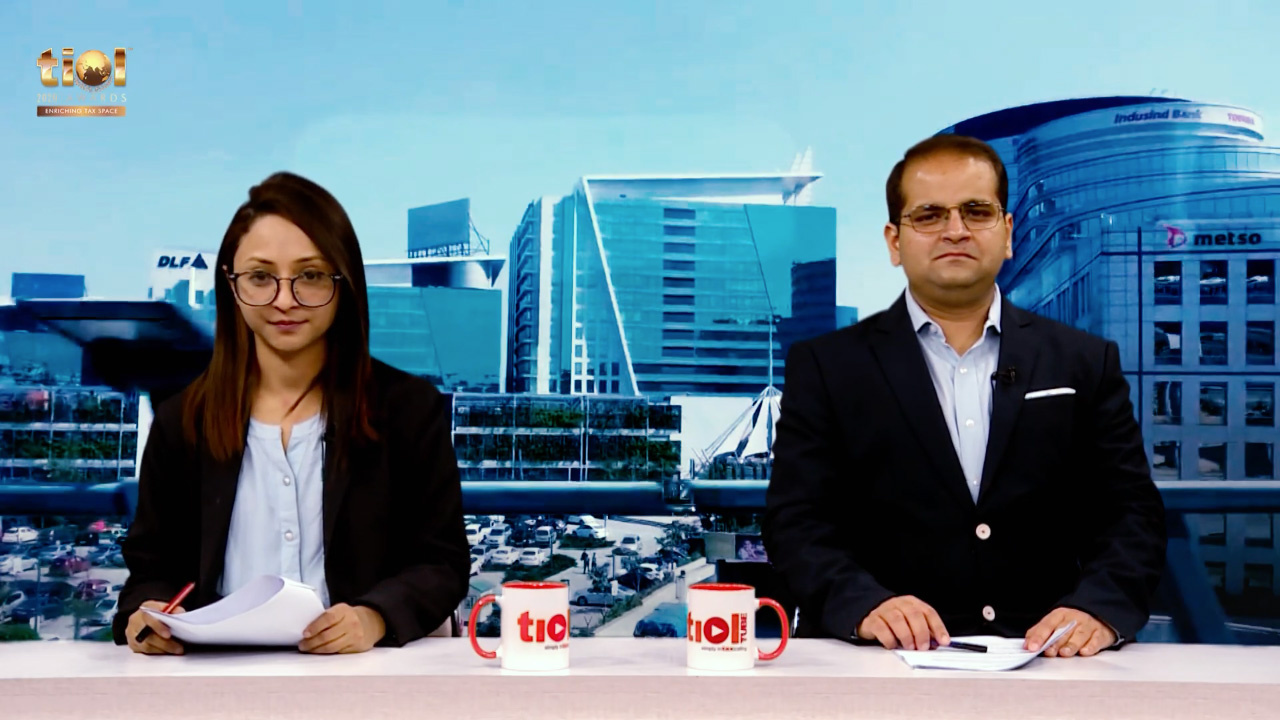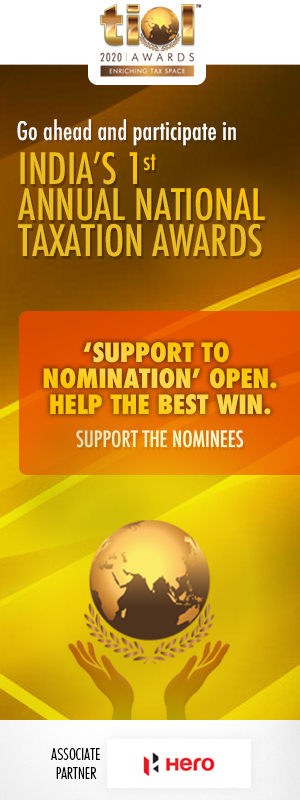|
SERVICE TAX
2020-TIOL-733-CESTAT-BANG
V Peter Vs CCT & CE
ST - The assessee is carrying on business as a commission agent for buying and selling of raw cashew and cashew kernel for export and this activity has been classified under category of "BAS" - They started paying Service Tax from the third quarter of 2004-05 onwards - On 15.12.2008, he was issued with SCN alleging that the income earned as commission agent had not been correctly declared in their ST-3 Returns during 2004-05 and demanding Service Tax on the undeclared income for the period 2004-05 - From the very beginning, stand of assessee was that he is not collecting Service Tax from any of his customers and as per the Notification, assessee is also not liable to pay Service Tax but in spite of that he was made to pay the Service Tax which the assessee paid under protest - Further, assessee vide letter dated 25.11.2005 written to Deputy Commissioner has stated that the assessee is remitting Service Tax under protest as the service recipients were not paying any Service Tax - This letter is sufficient to prove that Service Tax was paid under protest and once the Service Tax is paid under protest then as per proviso to Section 11B of CEA, 1944, the bar of limitation will not be applicable and further assessee had also produced sufficient proof on record to show that they have not collected the Service Tax from their recipients therefore the question of unjust enrichment will not be applicable - The impugned order rejecting the refund on time bar is not sustainable in law: CESTAT
- Appeal allowed: BANGALORE CESTAT
CENTRAL EXCISE
2020-TIOL-931-HC-MP-CX
CCGST & CE Vs WWW Sky Shop (P) Ltd
CX - Authorities have arrived at a conclusion that the goods were received in bulk from M/s. Davo Laboratories Palda and M/s. Balchem Laboratories, Bhopal and they were packed in individual bottles with hologram and barcodes and thereafter marketing of the goods took place and it was amounting to manufacture in terms of Chapter Note 6 to Chapter 30 and Chapter Note 5 to Chapter 33 of the First Schedule of the CETA, 1985 - CE duty demand was confirmed by lower authorities but the same was set aside by the CESTAT, therefore, Revenue is in appeal.
Held: Assessee/ respondent before this Court received the medicines duly duty paid from the manufacturers in a packed form mentioning therein the retail price - The undisputed facts also reveal that after receiving bottles of medicines in the packets, the assessee has just fixed the hologram and the barcode to avoid duplicity and an outercover was placed to ensure safe transportation - It certainly does not amount to the process of manufacture - It is the process which is being carried out by the Companies like Flipkart, Amazon, etc - They are also receiving the goods and they are just putting a cover over the goods received from various companies which have paid the duty and are being delivered to the consumers and, therefore, the circular issued by the Board which has been referred by the Appellate Tribunal dated 08/12/2011 is very much applicable in the present case - admittedly, there is no value addition - The goods are sold at the same MRP to the consumer - It is nobody's case that the goods are sold above the MRP to the consumer - The goods received by the vendor are already in a pre-packed form and bears necessary declaration including MRP as prescribed under the statutory provisions and they have already been subjected to Excise Duty earlier - In the present case the respondent assessee, neither replaces nor alters the retail packet or the declaration affixed therein and, therefore, the Tribunal was justified in allowing the appeal preferred by the assessee - No substantial question of law arises, therefore, the admission is declined: High Court
- Appeal dismissed: MADHYA PRADESH HIGH COURT 2020-TIOL-732-CESTAT-KOL
Pondy Technology Ltd Vs CCE
CX - It is an undisputed fact that the appellant procured duty paid machineries, parts and accessories of 'Continuous Automatic Coil to Coil Colour Coating Line' and 'Briqueting Hydraulic Press' and carried out the processing jobs thereon as set out in the impugned order, which included "assembly" to produce the aforesaid final products which were exported upon payment of duty under claim of rebate - It is also seen from the records that the input machines, parts and accessories were goods classifiable as excisable goods by themselves under tariff items different from the tariff items under which the exported final products were classified - activities undertaken by the appellant amounted to 'manufacture' of excisable goods within the meaning of Section 2(f) of the Central Excise Act, 1944 and consequently, the appellant is eligible to avail Cenvat credit of the duty paid on the said input machineries, parts, etc. under the Cenvat Credit Rules - disallowance of Cenvat credit of Rs.1,76,17,647/- and the duty demand of Rs.61,94,772/- (claimed as rebate) confirmed by the impugned order against the appellant are, therefore, unsustainable - impugned order is set aside and the appeal is allowed, with consequential relief: CESTAT [para 13, 14, 16]
- Appeal allowed: KOLKATA CESTAT
2020-TIOL-731-CESTAT-DEL
Rathi Steel Dakshin Ltd Vs CCE & CGST
CX - The assessee is engaged in manufacture of MS Bars - There is another registered dealer/manufacturer-M/s BRMPL who are engaged in manufacture of M. S. Flat and Round, to which SRSDL supplied rejected MS Ingot - During investigation, it appeared to revenue that suppliers of raw material had supplied raw materials to Biwadi RMPL without payment of duty and without invoices - Inquiry was also conducted against the raw material suppliers including assessee No.1 who had supplied Miss-roll to BRMPL - Accordingly, SCN was issued to all the three assessees - Whole of the case is based upon third party record - There is no corroborative evidence supporting the allegations of department - The director of assessee No. 1- Sh. Ajay Kumar Malhotra specifically denied any clandestine clearance of Miss-Roll to BRMPL - The department neither made investigation from the transporter or the truck drivers who transported the goods from the factory of the assessee No. 1 - There is no corroborative evidence that SRSDL received raw material, manufactured and cleared the goods clandestinely - Hence, allegations made against SRSDL and Sh. Ajay Kumar Malhotra are not sustainable - Assessee No. 3 is a private limited company hence penalty imposed is not sustainable - The impugned order is not sustainable and set aside: CESTAT
- Appeals allowed: DELHI CESTAT
CUSTOMS
2020-TIOL-730-CESTAT-DEL
CC Vs Radial Rubber Industries
Cus - The respondent-assessee paid Additional Customs Duty u/s 3(5) of the Customs Tariff Act 1975, which provides that if the Central Govt is satisfied that it is necessary in the public interest to levy on any imported article such Additional Duty as would counter- balance the sales tax, value added tax, local tax or any other charges for the time being leviable on a like article on its sale, purchase or transportation in India, it may, by notification in the Official Gazette, direct that such imported article shall, in addition, be liable to an Additional Duty at a rate not exceeding 4% of the value of the imported article as specified in that notification - The assessee filed claim for refund of Additional duty paid in respect of 4 BoEs - The Asst Commr sanctioned only part of the refund claim, as two of the four BoEs did not satisfy the conditions stipulated in the Notfn - The assessee approached the Commr.(A), who noted that though the refund was received by the jurisdictional officer after one year from the date of payment of additional duty - Considering certain judgments in Sony India Pvt. Ltd. v/s Commissioner of Customs, New Delhi and in Commissioner of Customs (Import), v/s Gulati Sales Corporation the issue was settled in favor of the assessee - Hence the Revenue's appeal.
Held: The High Court of Delhi in Sony India Pvt Ltd held that to allow the limitation period to start from the date of payment of duty as prescribed under the amended notification, would allow commencement of a limitation period for refund even before the right to claim refund actually accrued - It also held that neither Section 27 of the Customs Act nor the amended notification could impose a limitation period on the right of an importer to claim refund of additional duty, and that in any case, such limitation could only be introduced by legislation - The Revenue placed reliance on the decision of the High Court of Bombay in CMS Infosys System Ltd which did not express any view on this issue - Regardless of any view on the matter, the issue as to which of the two High Court judgment should be followed if both take conflicting positions, was settled by the Larger Bench of the Tribunal in Collector of Central Excise, Chandigarh vs. Kashmir Conductors whereupon it was held that if the jurisdictional High Court has taken a particular view on an interpretation or proposition of law, such view is to be followed - It was also held that if the jurisidictional High Court does not express any view in respect of the subject matter and there are conflicting views of other High Courts, then the Tribunal would be free to formulate its own view - Hence in view of the decision of the High Court of Delhi in Sony India the Commr.(A) was justified in allowing the the refund claim, even if it was filed beyond a period of one year from date of payment of additional duty of customs: CESTAT
- Revenue's appeal dismissed: DELHI CESTAT
2020-TIOL-729-CESTAT-DEL
Kothari Foods And Fragrance Pvt Ltd Vs CC
Cus - On merits, the appeal of Revenue was allowed by the High Court but the matter was remanded only for the limited purpose of inter alia relating to the question of limitation - Bar of limitation had been raised on the ground that no ingredients of section 28 of the Act have been invoked - Show cause notice has been issued after a expiry of two years period but the show cause notice itself has alleged suppression of facts on part of the exporter - The same has even been confirmed by the original adjudicating authority by observing that the non-disclosure of the technical characteristics is a consciously done act of the exporter - When this order was challenged before the High court, in para-6 of the order of High Court, the Commissioner's view that DFIA licences were obtained by suppression and distortion of facts has been observed with no contrary finding to the said observations - department has committed no error by invoking the extended period of limitation - appeal is, therefore, dismissed: CESTAT
- Appeal dismissed: DELHI CESTAT |
|










